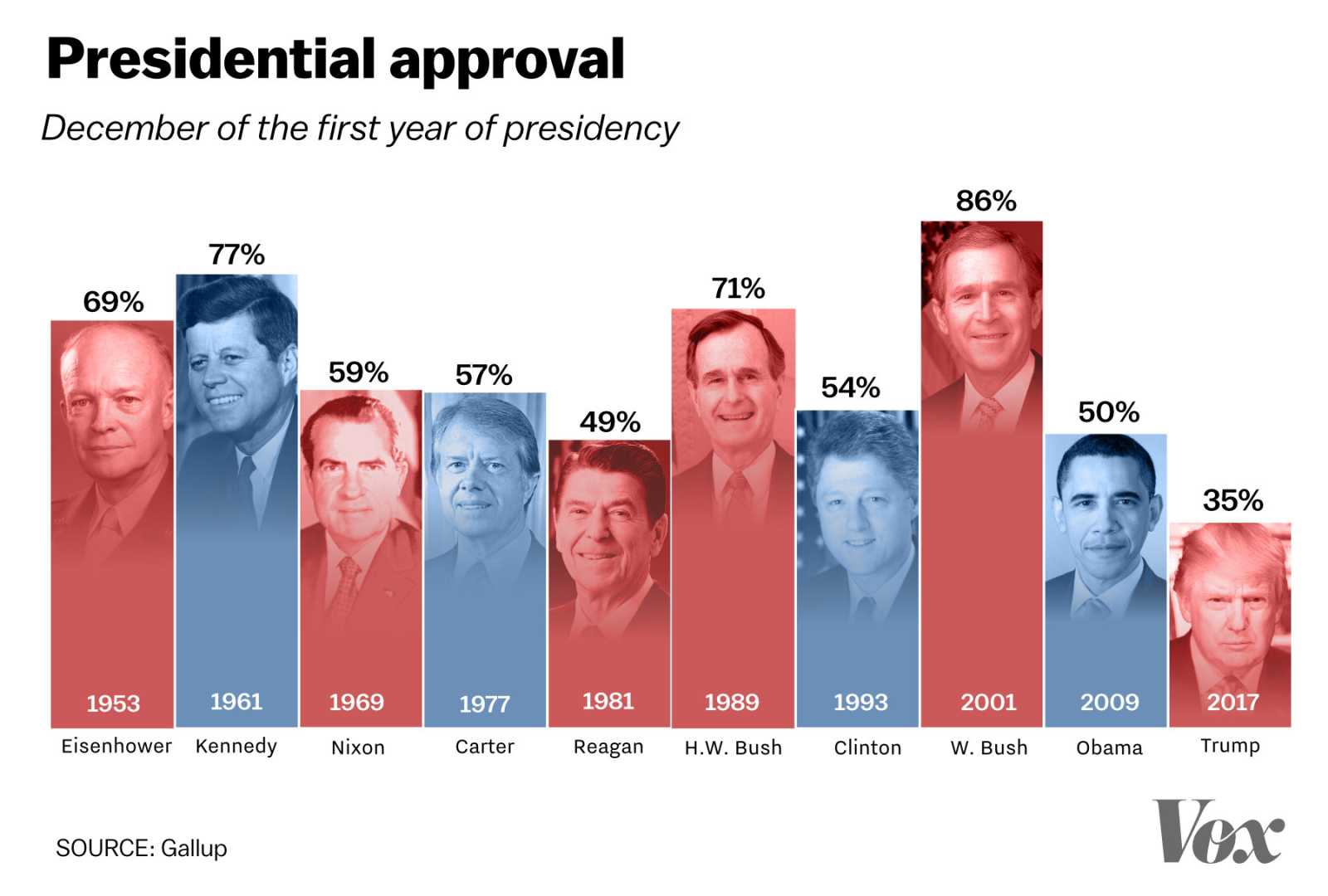Politics
Trump’s Approval Rating Struggles with First-Quarter Results

WASHINGTON, D.C. — President Donald Trump ended the first quarter of his second term with an average approval rating of 45%. This figure is higher than the 41% he held throughout his first term but remains well below the average 60% for U.S. presidents since World War II.
Poll results show that John F. Kennedy and Dwight Eisenhower had the highest first-quarter ratings, both exceeding 70%, while other presidents like Jimmy Carter, Barack Obama, and Ronald Reagan ranged between 60% and 69%. Trump holds the distinction of being the only president to have sub-50% average ratings during a first quarter in office.
According to a recent poll conducted from April 1-14, Trump’s latest approval rating stands at 44%. During this period, 53% of Americans expressed disapproval of his job performance. Despite Trump’s approval remaining stable among his party—90% of Republicans approved—only 4% of Democrats felt the same, and independents showed a 37% approval rating.
The economic backdrop during this polling period was marked by Trump’s announcement of sweeping tariffs on April 2, which led to a stock market decline. While Trump instituted a temporary pause on some tariffs on April 9, economic instability persisted, raising concerns of a potential recession.
In terms of confidence in Trump’s economic management, only 44% of U.S. adults expressed trust in his decisions related to the economy. A breakdown showed that 30% had a ‘great deal’ of confidence, while 14% had ‘a fair amount.’ Meanwhile, 55% indicated they had either ‘only a little’ (11%) or ‘almost none’ (44%) trust in him regarding economic decisions.
Public confidence in other U.S. leaders regarding economic management is similarly low. Fewer than four in ten had a ‘great deal’ or ‘fair amount’ of confidence in Republican leaders in Congress (39%), Federal Reserve Chairman Jerome Powell (37%), House Speaker Mike Johnson (36%), and Senate Republican Leader John Thune (33%). Even Democratic leaders received lower confidence ratings, including 30% for House Democratic Leader Hakeem Jeffries and only 25% for Senate Democratic Leader Chuck Schumer.
Gallup has been tracking public confidence in economic handling by presidents since 2001. Trump’s current 44% approval rating is lower compared to previous presidents, with both Bush and Obama reaching levels above 70% during their early terms. Present conditions indicate a significant number of Americans are concerned about financial issues, primarily inflation, health care costs, and the federal budget deficit.
Polling data from various sources continues to depict a picture of significant partisan division regarding economic trust. Despite these challenges, Trump’s administration faces a critical period ahead as these dynamics shift public perception and its impact on upcoming political scenarios.












